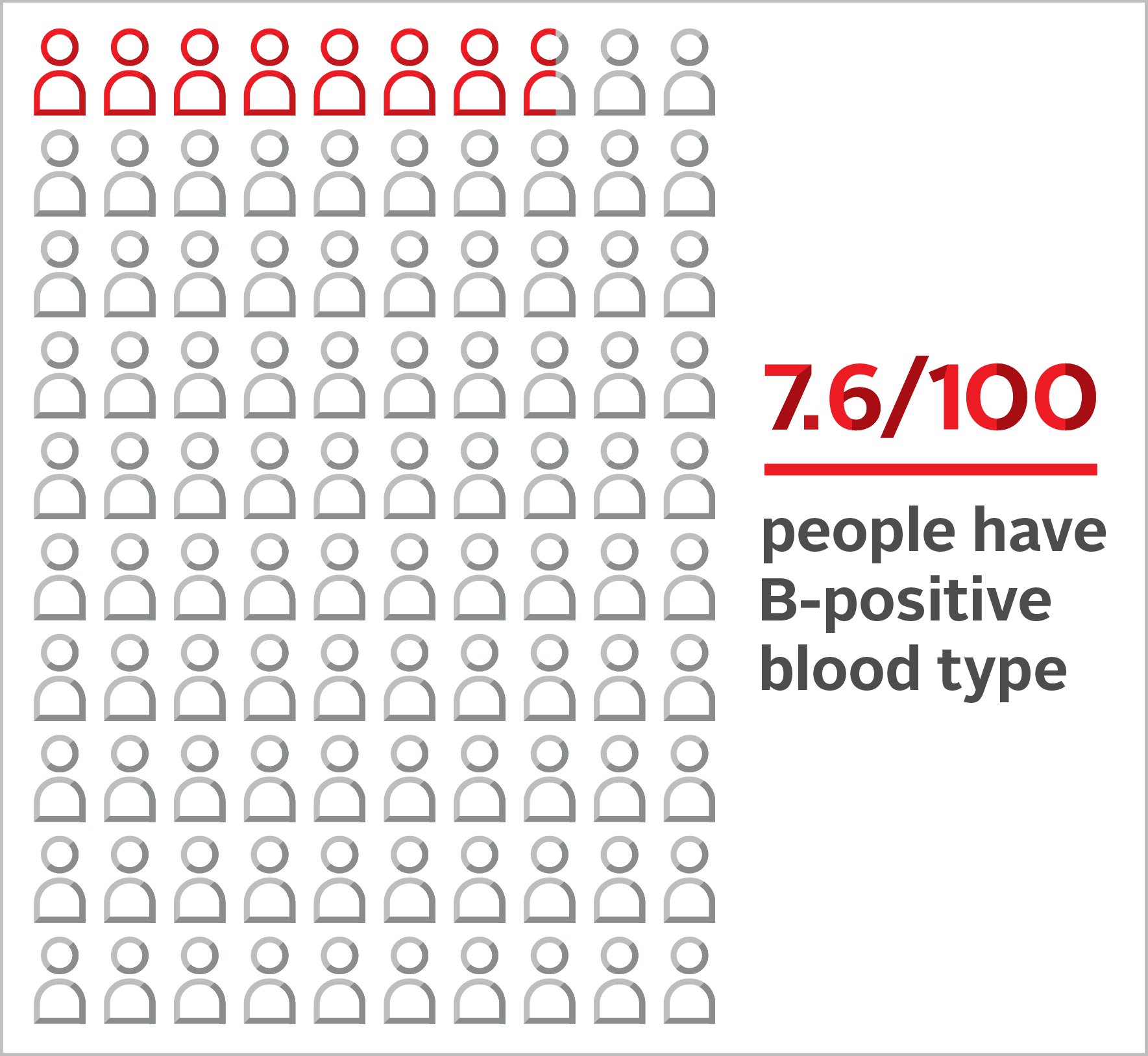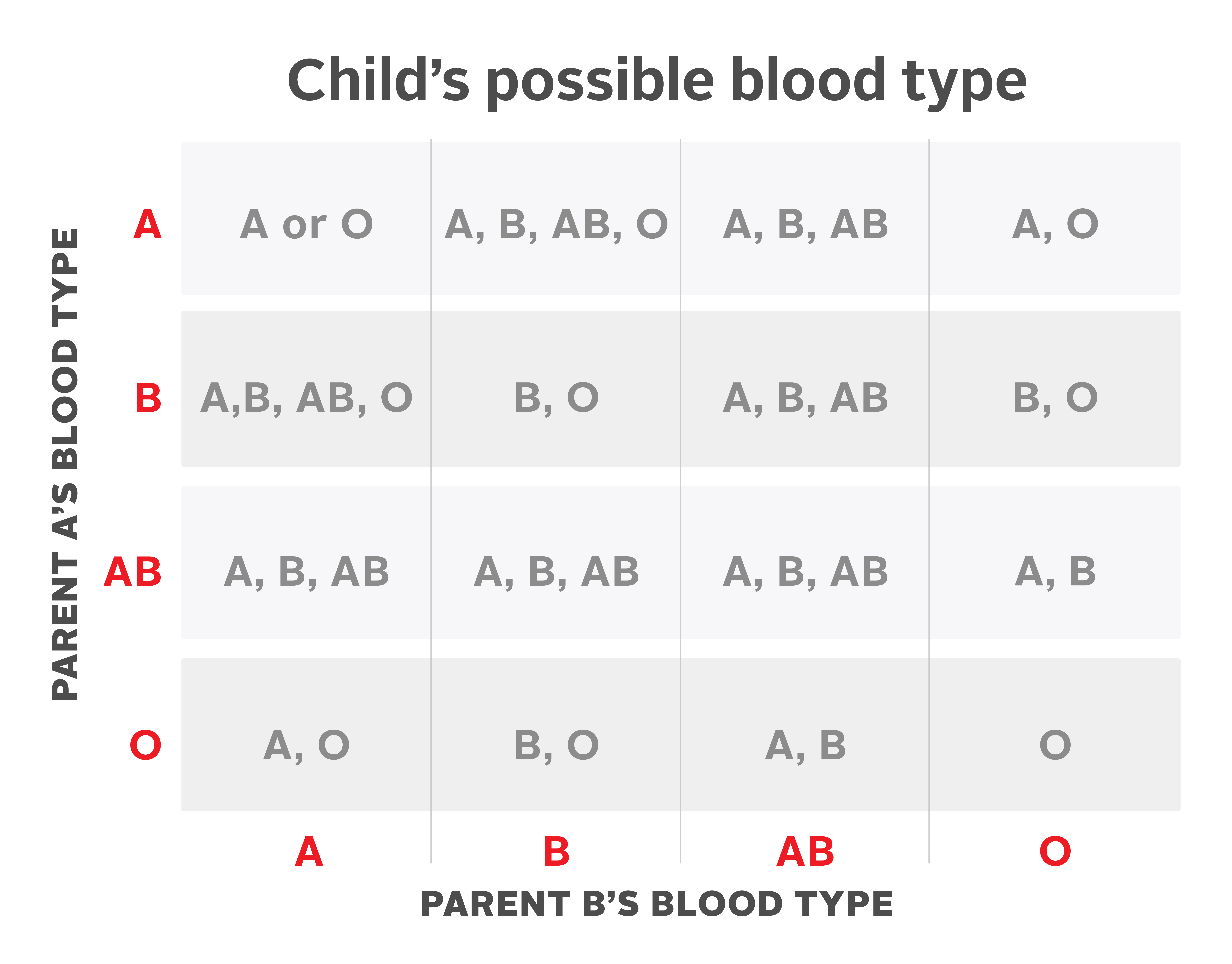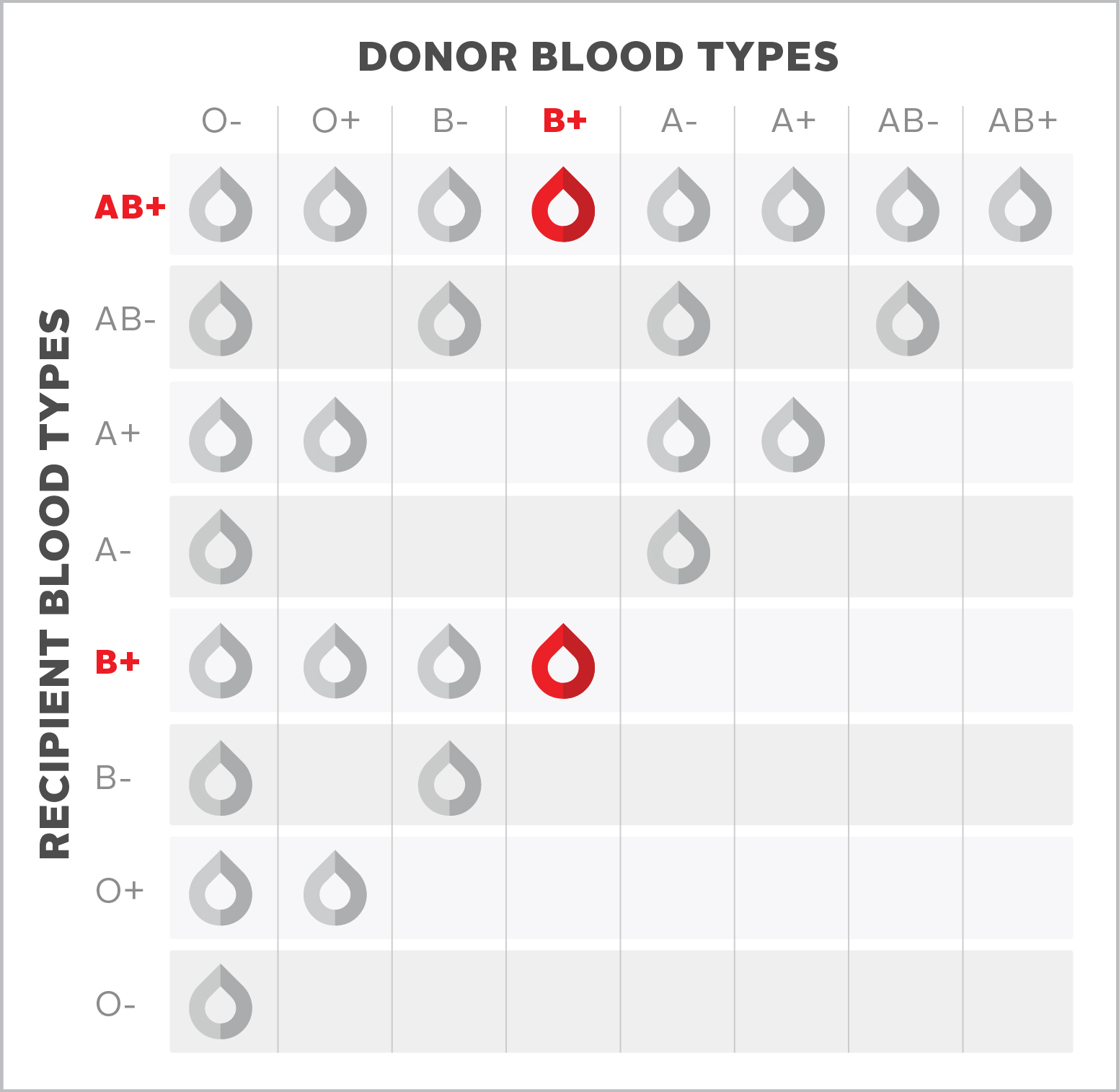B-positive (B+) Blood Type
In addition to the ABO blood group, a person’s blood type is categorized as positive (+) or negative (-). This refers to the presence or absence of the Rh factor on a person’s red blood cells. The Rh factor is also known as Rhesus or the D antigen type. If the Rh factor is present on the red cells, then the person is considered positive (+). Conversely, if the Rh factor is not found on the red cell surface, the person is considered negative (-).
Why do I have the B-positive blood type?
Like your eye and hair color, your blood type is inherited from your parents. Your ABO blood group depends on your parents’ ABO blood group. Whether you have positive or negative blood doesn’t factor into determining your ABO blood group. If you are blood group B you were born from parents that have one of the following combinations:
- A and B
- AB and A
- B and B
- A and B
- AB and B
- AB and O
- B and O
Some exceptions to these common patterns may exist. Consult with your health care provider if you have questions about parentage or blood group inheritance.
Why is my blood type B-positive?
Your red blood cells have the B antigen on their surface. You are considered positive because your red blood cells have the Rh factor.
How rare is B-positive blood?
B-positive blood is the third most common blood type, with about 7.6% of the Canadian population having it.
Who can people with B-positive blood receive blood from?
People with B-positive blood can receive blood from:
- B-positive donors
- B-negative donors
- O-positive donors
- O-negative donors
Who can receive the B-positive blood type?
B-positive red blood cells can be given to people with:
- B-positive blood
- AB-positive blood
Why does my blood type matter?
The right blood transfusion can mean the difference between life and death. Our immune systems are designed to know what belongs in our body and what doesn’t. If a patient gets the wrong blood type, things can go very wrong. That’s why there are very specific ways in which blood types must be matched for a safe transfusion.
How can I find out my blood type?
Every donor is tested as part of the blood donation process to identify exactly which type they belong to. Book your appointment to donate blood and find out.


